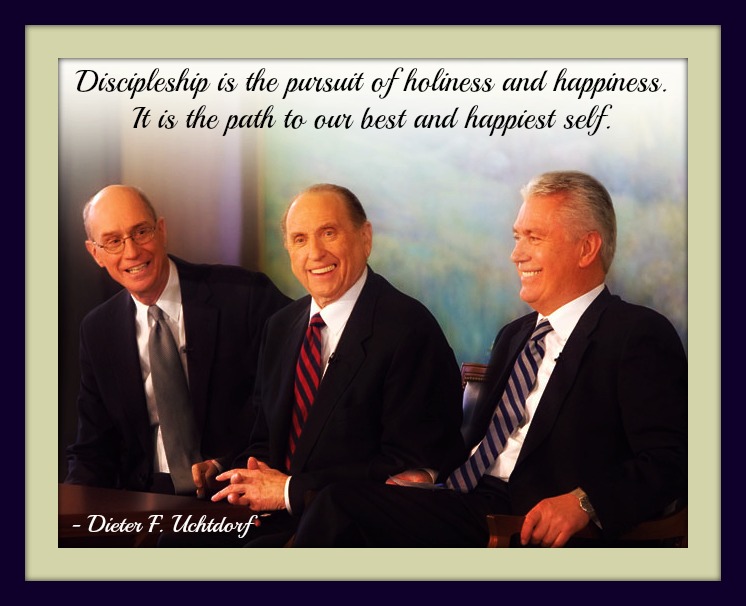
by megan | May 29, 2013 | About Mormons
For centuries people have been striving to follow Christ, ever since His mortal ministry on earth. Even before He came to earth, prophets testified of Him, and people believed in Him. Since His death and the death of His apostles, people all across the world identify themselves as Christian: someone who believes in Jesus Christ and follows His teachings.
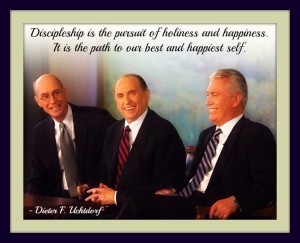 Mormons Are Christians
Mormons Are Christians
As a member of The Church of Jesus Christ of Latter-day Saints, sometimes mistakenly called the Mormon Church, I am also a Christian, the same as members of other Christian faiths such as Baptists or Methodists or Lutherans. I believe in Jesus Christ and strive to follow His teachings. Elder Robert D. Hales, an apostle and leader of The Church of Jesus Christ, explains what it means to be a Christian:
A Christian has faith in the Lord Jesus Christ, that He is the literal Son of God, sent by His Father to suffer for our sins in the supreme act of love we know as the Atonement. A Christian believes that through the grace of God the Father and His Son, Jesus Christ, we can repent, forgive others, keep the commandments, and inherit eternal life. The word Christian denotes taking upon us the name of Christ (“Being a More Christian Christian,” Ensign November 2012). (more…)
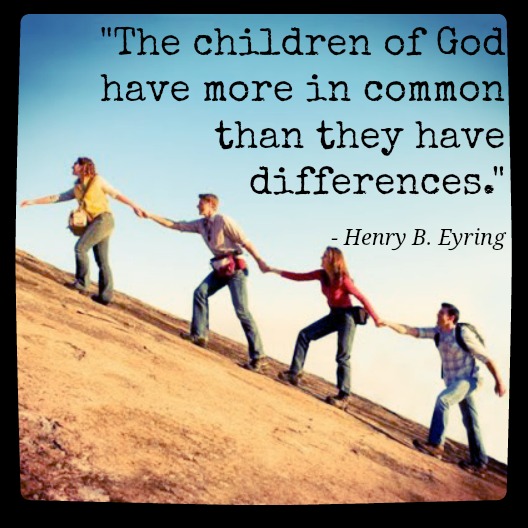
by Lisa M. | May 23, 2013 | Mormons in the News
Delegates from The Church of Jesus Christ of Latter-day Saints—sometimes inadvertently called the Mormon Church—encouraged participants to find common ground with those of different cultures and religions during a recent worldwide conference on religious and cultural dialogue in Skopje, Macedonia. “We are all the children of God. We are all brothers and sisters,” said Manfred Schütze, the head of the 4-member delegation from The Church of Jesus Christ. [1]
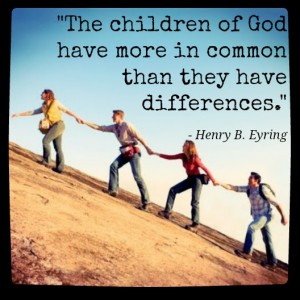 The gathering—sponsored by the government of the Republic of Macedonia and the United Nations Educational, Scientific and Cultural Organization (UNESCO)—brought together government officials, religious representatives and scholars. The world conference, which takes place every three years, focused on three topics: pluralistic societies and religious tolerance, living together by respecting diversity, and the contribution of media to the interreligious and intercultural dialogue. [1]
The gathering—sponsored by the government of the Republic of Macedonia and the United Nations Educational, Scientific and Cultural Organization (UNESCO)—brought together government officials, religious representatives and scholars. The world conference, which takes place every three years, focused on three topics: pluralistic societies and religious tolerance, living together by respecting diversity, and the contribution of media to the interreligious and intercultural dialogue. [1]
In addition, delegates from The Church of Jesus Christ emphasized the importance of freedom of worship and fair and accurate news reporting on religion at the World Conference on Dialogue Among Religions and Civilizations. Representatives from The Church of Jesus Christ were active participants at the 2010 and 2007 gatherings as well. [1] (more…)
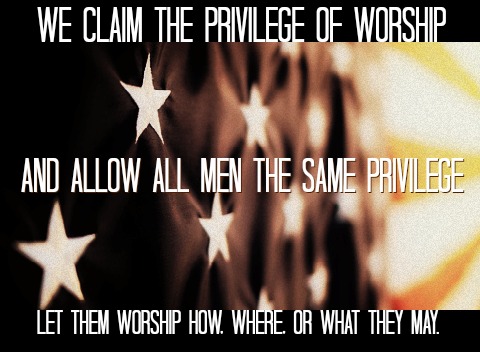
by Keith L. Brown | May 16, 2013 | About Mormons
According to Wikipedia, the free encyclopedia, “Freedom of religion or Freedom of belief is a principle that supports the freedom of an individual or community, in public or private, to manifest religion or belief in teaching, practice, worship, and observance; the concept is generally recognized also to include the freedom to change religion or not to follow any religion.”
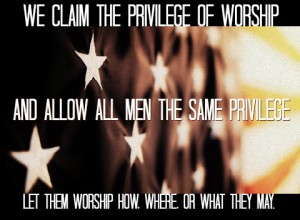 On the outset, Wikipedia’s definition appears to be an all-encompassing one that should be viewed as equitable by all concerned, as at its core, it basically states that all people are free to believe what they will, and worship, or not worship, as they so desire. If one were to review the First Amendment of the United States Constitution in hopes of finding a duplicate definition, however, he will find that somewhat different wording is used.
On the outset, Wikipedia’s definition appears to be an all-encompassing one that should be viewed as equitable by all concerned, as at its core, it basically states that all people are free to believe what they will, and worship, or not worship, as they so desire. If one were to review the First Amendment of the United States Constitution in hopes of finding a duplicate definition, however, he will find that somewhat different wording is used.
Religious Liberty and the First Amendment of the U.S. Constitution
Ross Douthat in his New York Times article titled Defining Religious Liberty Down notes: (more…)

by Lisa M. | May 10, 2013 | Meet Some Mormons
Valerie Hudson Cassler is a feminist—and “as a feminist, I remain a steadfast member of The Church of Jesus Christ of Latter-day Saints,” sometimes inadvertently called the Mormon Church. Hudson Cassler, who converted to The Church of Jesus Christ from Roman Catholicism, writes, “How remarkable and in some senses ironic it still seems to me to have experienced ‘women’s lib’ by conversion to Mormonism!”
Men and Women are Equal Before God
Hudson Cassler shares what she believes are “the main points of doctrine that make Mormonism the most feminist of all the Christianities.”
“The Restored Gospel teaches that the term ‘God’ means an exalted woman and an exalted man married in the new and everlasting covenant (Doctrine and Covenants 132:19-20—the Doctrine and Covenants is a book of modern revelation). We are taught that there is no God without men and women loving each other as equals. …” (more…)
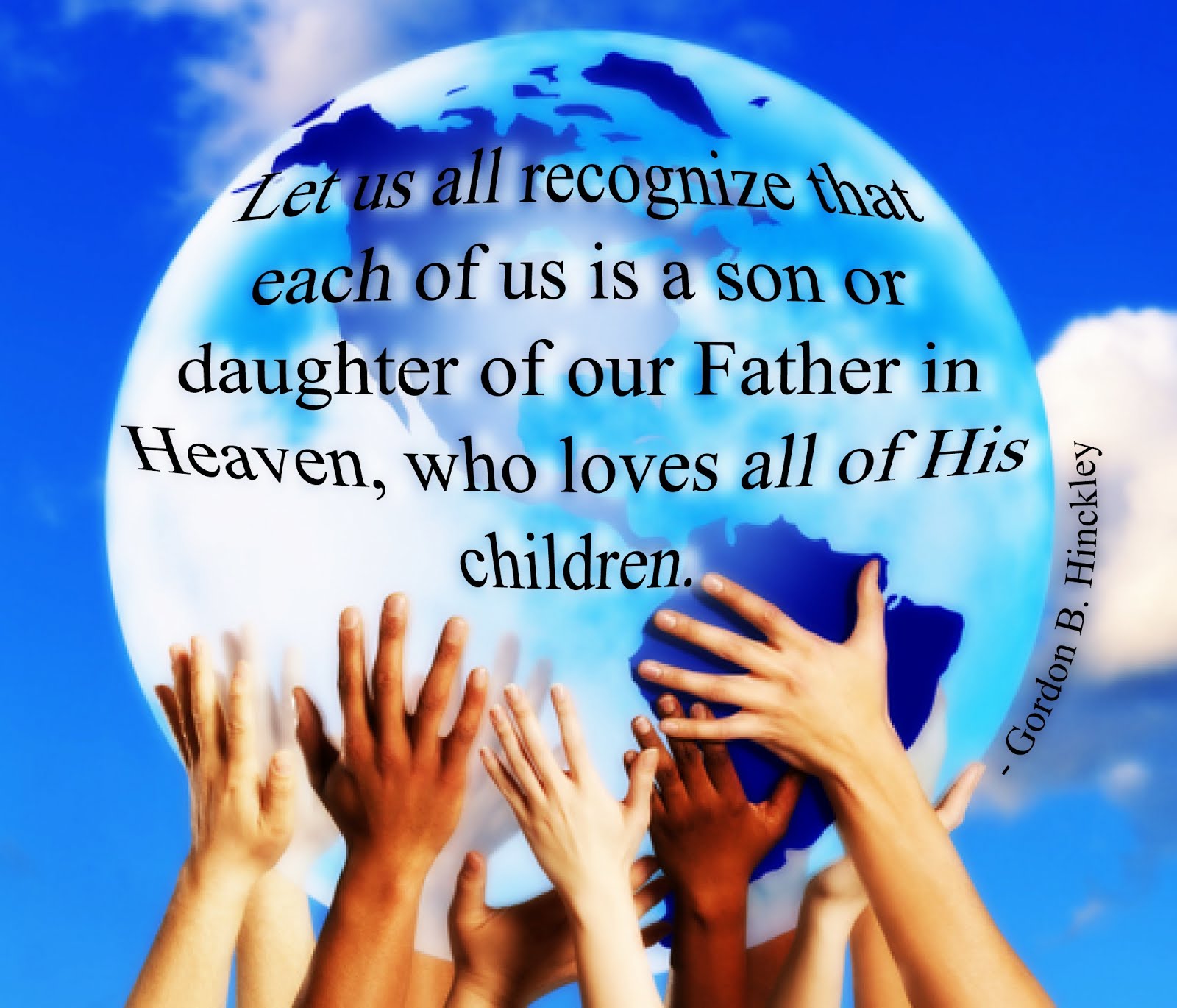
by Keith L. Brown | May 7, 2013 | About Mormons
The Church of Jesus Christ of Latter-day Saints (inadvertently referred to as the Mormon Church by the media and others) has witnessed a growth rate of 45% in its membership in the United States over the past decade. This increase is due largely in part to the growing number of its Spanish-speaking converts.
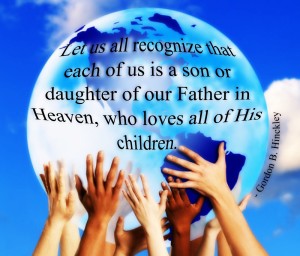 According to an article by Jack Rodolico on the Fronteras website titled Mormon Missionaries without Papers, the number of Spanish –speaking members of The Church of Jesus Christ has doubled since the year 2000. Rodolico goes on to point out that many of those Latino members do not have the proper legal documentation for being in the United States, which in turn causes problems for the LDS Church, and especially for those Latino members desiring to serve full-time missions. (more…)
According to an article by Jack Rodolico on the Fronteras website titled Mormon Missionaries without Papers, the number of Spanish –speaking members of The Church of Jesus Christ has doubled since the year 2000. Rodolico goes on to point out that many of those Latino members do not have the proper legal documentation for being in the United States, which in turn causes problems for the LDS Church, and especially for those Latino members desiring to serve full-time missions. (more…)









